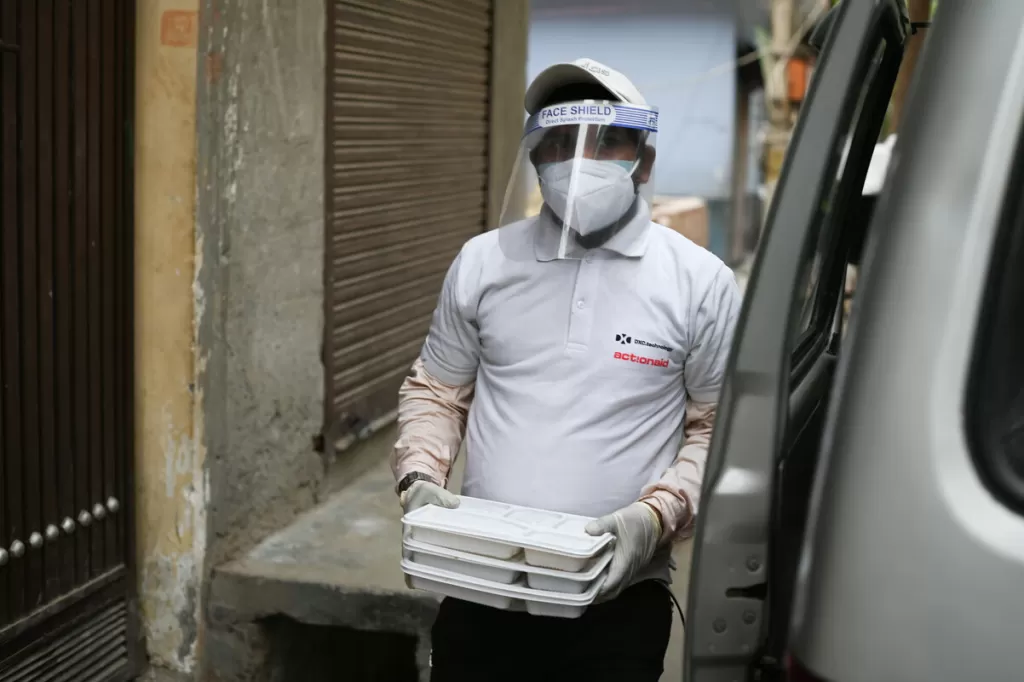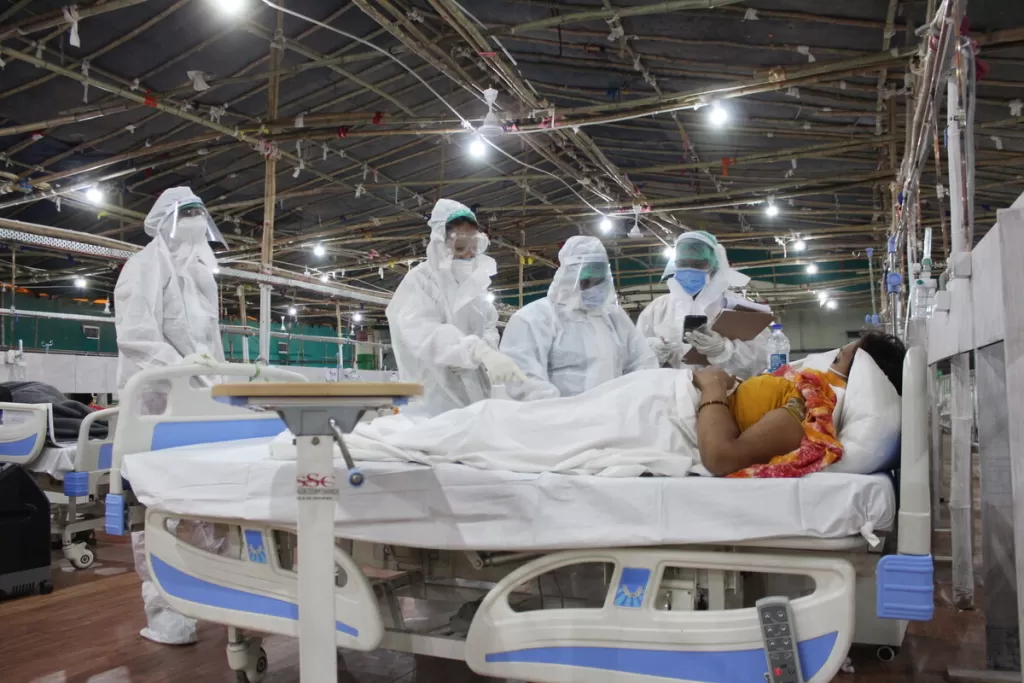Aid workers from DEC charities in India have talked movingly about how many of their own staff and family members have succumbed to Covid but, despite their grief, they are pressing ahead with their urgent work.
Many describe it like being caught up in a hurricane but – unlike the natural disasters they are used to dealing with – they do not know when it will end.
Imtiaz Ahmed, Mission Head at Age International’s local partner HelpAge, says: “It’s much bigger than any natural disaster that I have worked on. With a natural disaster it happens and then you deal with it; with Covid it’s like a storm that’s raging and running out of control, getting bigger and bigger. And you have no idea how big it’s going to get.”
Susmita Guha, Senior Manager for the West Bengal State Programme of Save the Children, says the 100-year-old organisation has done so much humanitarian response in the past – but this is an unparalleled situation. Having to coordinate plans away from where they will be delivered because of lockdowns is particularly difficult but some work has to be done in person.
She adds: “We have responded to war, cyclone, earthquake, I mean, all other natural or man-made calamities, but this one, where you cannot be physically present in a situation, you cannot be on ground, is extremely challenging.
“And if you are present, you are actually risking your own life and risking your team member’s life. So that's a confusing and difficult situation.”
The description of a never-ending disaster has been echoed by a doctor in Kolkata interviewed by the BBC. Dr Kuldip Batabyal told India correspondent Yogita Limaye: “I don’t know how long we can continue like this. Even a war comes to an end but here it’s wave after wave.”


